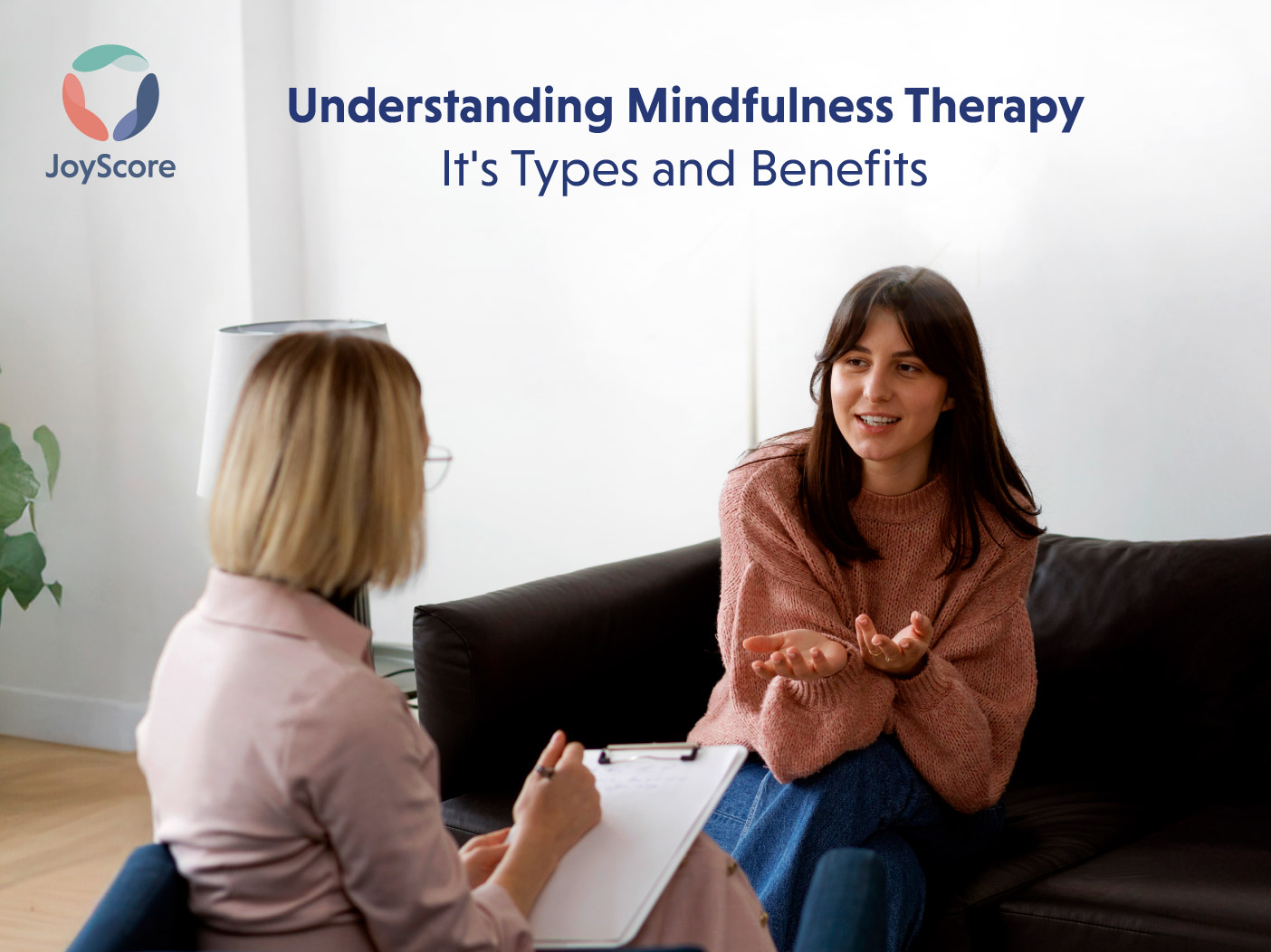As the name suggests, mindfulness-based therapy is a type of psychotherapy that can be used for the nourishment of your brain. It is the combination of activities which altogether cultivate a present-oriented, non-judgmental attitude. This means you are intensely aware of what you’re sensing and feeling in the moment without interpretation.
Mindfulness-based therapy was created by an American professor, Jon Kabat-Zinn and further developed by psychologist Zindel Segal and professor Mark Williams. This form of therapy was inspired by the 2,600-year-old meditation strategy of Lord Buddha. Later, it became popular in Western societies in the late 20th century, where it was widely used by psychiatrists to treat mental and physical ailments.
Mindfulness is both a skill and practice, and it can help you develop the ability to stay in the moment with ease. It helps you learn how to be the master of your mind and move through the ups and downs of life easily.
BENEFITS OF MEDITATION-BASED THERAPY
- ANXIETY DISORDERS
An anxiety disorder can contribute to a number of mental problems, such as panic disorder, social anxiety, phobias and post-traumatic stress disorder. The feelings of worry, tension, fear and panic are some of the symptoms associated with this disorder. However, studios show, that after a few therapy sessions of mindfulness, patients are able to quiet their minds and control their negative emotions. It teaches them positive thinking patterns, which influence their perception.

- DEPRESSION DUE TO CHRONIC ILLNESSES
People diagnosed with some serious chronic illness or disease often experience symptoms of depression. This is because chronic illnesses result in feelings of hopelessness, sadness and often anger. Out of all the different psychotherapies, mindfulness therapy has been shown to have the best results here. It helps one learn how to have the willpower to challenge and reject unhelpful thoughts when they arise and make healthier adjustments in life.
- MOOD DISORDERS
Constant feelings of sadness is an emotional state which is characterized by hopelessness and often low esteem. Distressing events further cause feelings of negativity, irritability and getting easily annoyed. Mindfulness-based therapy can treat these mood disorders by improving connectivity in certain brain areas. During a mindfulness session, individuals tune in with their heart, body and mind. They can access their inner happiness and learn how to find peace through acceptance.
- INSOMNIA:
Insomnia is a disorder when one struggles to sleep at night. Typically, the more someone with insomnia tries to force themselves to sleep, the more rebellious their mind and body become. One needs to set up healthy external as well as internal environments to improve insomnia. For example, prepare a dark, quiet and cool bedroom. Then, address your internal environment by practicing mindfulness therapy, which will further induce natural sleep.
Other benefits of mindfulness based-therapy:
- Improved self-esteem
- Improved memory and cognitive flexibility
- Improved relationship satisfaction
HOW TO ACHIEVE MINDFULNESS
- MINDFULNESS-BASED COGNITIVE THERAPY (MBCT)
MBCT is the type of psychotherapy which focuses on changing how individuals relate to their thoughts and perceptions. It is the advanced technique of cognitive treatments which are enhanced by the application of mindfulness practices. This approach is also known as “decentering”, where you are not attached or reacting to the thoughts passing through your mind but accept them without judgment. This prevents one from self-criticism as you are not responding to the negative thinking patterns. MBCT also benefits individuals living with chronic clinical ailments and high stress.
MBCT is the combination of mindfulness meditation, cognitive reconstructing and psycho-education. You will understand:
- What depression actually is
- What makes you vulnerable to a low mood
- The connection between negative thinking and downward spirals
- The way to restore your peace of mind
- MINDFULNESS-BASED STRESS REDUCTION (MBSR)
As the name suggests, MBSR therapy was originally designed for stress management. So, it is beneficial in treating a variety of illnesses like depression, anxiety, chronic pain, cancer, diabetes, hypertension and other chronic diseases.
MBSR involves weekly group sessions and daily mindfulness exercises to practice at home for over an 8-week period. You are taught how to practice mindfulness through yoga and meditation. Regular practice influences two different stress pathways in the brain and blocks them. Your brain activity associated with attention and emotion regulation is enhanced, and you are less likely to worry about a negative thought. Ways to practice MBSR:
- Focused breathing
- Practice body scans
- Try gentle stretches
- Go out for a mindful walk
- MINDFUL FOCUS ON A TASK OR OBJECT
This type of mindfulness allows you to use the power of your brain while performing some activity. For instance, if you do mindful eating, such as eating without looking at your phone or a television, you will be able to connect more with your feelings of hunger and recognize when you’re full.
Similarly, focused meditation can also be done by focusing your attention on an object, sound or sensation. Choose a comfortable position and choose one thing to focus on. Even if your internal monologue starts to analyze your target or starts to worry about something in life, don’t worry; just bring your attention back to the target. In the long run, this type of mindfulness helps people get less bothered by external disturbances like car alarms and others.
- YOGA
Yoga is a practice which encourages mindfulness as it brings your attention to your breath and body. There are many different types of yoga, too. Slower practices like Kundalini yoga are ideal for your inner peace as it involves meditation and chanting during the session. However, Vinyasa yoga and Power yoga help you focus on your breath as you move through different poses. In totality, yoga will make you feel more content and less stressed.

TRADITIONAL TALKING THERAPY VS MINDFULNESS-BASED THERAPY
As discussed above, mindfulness-based therapy is a psychotherapy that can alter one’s attitude and relationship with their thoughts. It incorporates practices like meditation and breathing exercises, which can be done without any professional guidance. However, traditional talking therapy or cognitive therapy focuses on restructuring the thoughts and beliefs of an individual. There is a physical conversation with a psychotherapist to understand and cope with your problems. It can be done one-on-one, in a group, online or over the phone. Different types of talking therapies are:
- Cognitive behavioral therapy (CBT)
- Guided self-help
- Counseling
- Interpersonal therapy
- Psychodynamic psychotherapy
- Couple therapy,
- Behavioral activation
- Mindfulness-based cognitive therapy (MBCT)

CONCLUSION
Mindfulness therapies make people less reactive to unpleasant situations and stressors in life. With these practices, you will develop the ability to relate to people more and bestow kindness, acceptance and compassion toward others. So, remember to incorporate the following therapies in your daily practice for a more balanced and positive life:
- Mindfulness Meditation
- Loving-kindness meditation
- Breathing
- Body scan
- Sensory exercises
- Visualization
- Yoga
Download the JOYSCORE app to learn how to have more happiness and less stress in your life.
Download on the Appstore
Get it on Google Play



